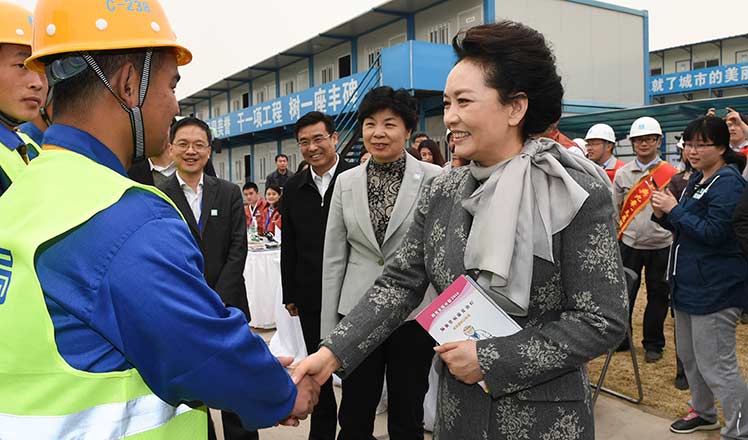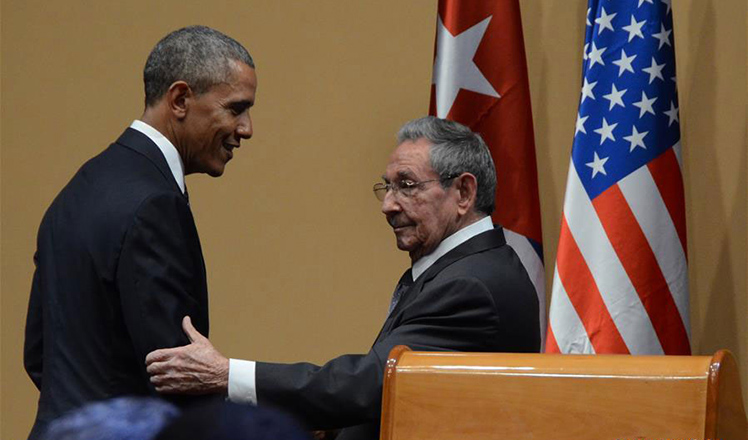Experts hopeful on Xi-Obama talks
Updated: 2016-03-25 11:50
By Chen Weihua in Washington(China Daily USA)
|
||||||||
Experts hope that next week's bilateral meeting between President Xi Jinping and US President Barack Obama will help ease tensions over the South China Sea, a key area of contention between the two countries over the past few years.
Vice-Foreign Minister Li Baodong said in Beijing on Thursday that Xi will attend the fourth Nuclear Security Summit in Washington from March 31 to April 1, including all the formal events.
Xi will deliver a keynote speech, expounding on China's policy and its latest measures and achievements in the nuclear security field and make proposals to strengthen the global nuclear security regime.
Li said Xi will hold bilateral talks with Obama, the first between the two leaders in 2016. He described the meeting as being of "profound significance in pushing forward the continued and steady development of the bilateral relationship".
The White House said in a statement on Thursday that the bilateral meeting will present an opportunity to advance US-China cooperation on a range of issues of mutual interest, while also enabling the two leaders to address areas of disagreement constructively.
"This will be Obama's only bilateral meeting during the summit, suggesting the importance of US-China leadership communications," said Douglas Paal, vice-president for studies and director of the Asia program at the Carnegie Endowment for International Peace.
Paal expects the South China Sea to be a major topic of the bilateral meeting. He said China has raised concerns over the new US announcement of facilities access in the Philippines and the potential deployment of a THAAD (Terminal High Altitude Area Defense) system in South Korea, while the US will seek a reiteration or clarification of Xi's declaration of no intent to militarize the Nansha Islands.
Paal said a security dilemma is developing between the big powers.
"This situation cries out for leaders to communicate and manage the rising tensions. Each side sees the other as at fault. Some signs of mutual restraint are required," Paal told China Daily on Thursday.
The US is the second stop on Xi's trip, which will first take him to the Czech Republic from March 28 to 30.
Jeffrey Bader, senior fellow of foreign policy at the John L. Thornton China Center of the Brookings Institution, described the bilateral meeting - Obama's only bilateral meeting with any of the 52 heads of state and government attending the nuclear security summit - as "a sign of respect for Xi and an indication of how important President Obama considers the US relationship with China."
Writing on the Brookings website, Bader said the meeting will come at a time of more than usual friction in the US-China relationship. He believes the meeting is likely to focus a good deal on the South China Sea. He said there is concern in Washington and the region about how China might react, beyond formal rejection, to a decision by the International Tribunal in April or May regarding the Philippine complaint on the Law of the Sea, challenging China's maritime claims.
China has long stated that it will not participate or accept such mandatory arbitration. Foreign Minister Wang Yi said in Washington last month that when China signed the United Nations Law of the Sea (UNCLOS) 10 years ago, it made the Article 298 declaration not to accept mandatory arbitration, a declaration that was also made by some 30 signatory nations including Britain, France and Russia. The US Congress has yet to ratify the UNCLOS.
It is expected that the denuclearization of the Korean Peninsula will also be on the agenda. China has supported the UN Security Council resolution that imposes sanctions on Pyongyang. China has also called on all sides to refrain from taking actions that further raise tensions there. The US and South Korea are holding their largest-ever joint military exercises, with 17,000 American and 300,000 South Korea troops.
China has called for the resumption of the Six-Party Talks and proposed a parallel approach for the DPRK to abandon its nuclear weapons program while the US and South Korea agree to sign a peace treaty with the DPRK to replace the 1953 armistice treaty.
chenweihua@chinadailyusa.com

 First lady Peng Liyuan leads fight against tuberculosis
First lady Peng Liyuan leads fight against tuberculosis
 Faces at Boao Forum for Asia Annual Conference
Faces at Boao Forum for Asia Annual Conference
 In photos: Lunar eclipses visible in eastern China
In photos: Lunar eclipses visible in eastern China
 Chinese chasing Spring blossoms around the country
Chinese chasing Spring blossoms around the country
 Migrant couple returns to hometown to raise chickens
Migrant couple returns to hometown to raise chickens
 Victims of Brussels attacks commemorated
Victims of Brussels attacks commemorated
 In photos: Brussels rocked by multiple explosions
In photos: Brussels rocked by multiple explosions
 Raul Castro and Obama hold talks in Havana
Raul Castro and Obama hold talks in Havana
Most Viewed
Editor's Picks

|

|

|

|

|

|
Today's Top News
Marriott unlikely to top Anbang offer for Starwood: Observers
Chinese biopharma debuts on Nasdaq
What ends Jeb Bush's White House hopes
Investigation for Nicolas's campaign
Will US-ASEAN meeting be good for region?
Accentuate the positive in Sino-US relations
Dangerous games on peninsula will have no winner
National Art Museum showing 400 puppets in new exhibition
US Weekly

|

|







